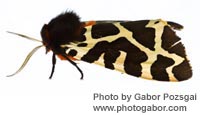Hermona Soreq
Research Focus
Anxiety reactions involve complex, incompletely understood interactions of genomic, environmental and experience-derived factors, and anxiety disorders present a major mental health problem. Recent research in the laboratory focuses on the putative functional role(s) of anxiety reactions as a neuroprotection strategy, and more specifically, on anxiety-induced changes in cholinergic neurotransmission. These changes modulate the motor control over movement, facilitate the consolidation of traumatic memories, and activate brain-to-body communication through the neuron-immune interface modifying blood cell composition and platelet production.
Basic molecular mechanisms known to accompany stress reactions also occur during neurodegenerative processes. For example, stress and anxiety-associated changes were found in the expression pattern of the acetylcholinesterase ACHE gene, which encodes the acetylcholine hydrolysing enzyme AChE. AChE is not one, but a combinatorial series of proteins having indistinguishable enzymatic activity yet with variant N- and C-termini due to alternate promoter usage and 3'-alternative splicing.
Differentially induced under stress, they show distinct non-hydrolytic properties, interact with variant-specific protein partners and induce inverse signaling cascades. Thus, transcriptional and post-transcriptional regulation of AChE pre-mRNA protects both blood and nerve cells from acute dangers, but may also entail long-term damages. Specifically, variant-specific causal involvement of AChE in the progression of Alzheimer's and Parkinson's disease and neuromuscular syndromes like myasthenia gravis, anticipate future therapeutic needs for drugs targeting specific AChE variant(s) or the corresponding RNA transcripts.
Publications
- Shaked, I., Zimmerman, G., Soreq, H. (2008). Stress-induced alternative splicing modulations in brain and periphery: acetylcholinesterase as a case study. Annals of the New York Academy of Sciences 1148, 269-81.
- Soreq, L., Gilboa-Geffen, A., Berrih-Aknin, S., Lacoste, P., Darvasi, A., Soreq, E., Bergman, H. and Soreq, H. (2008) Identifying Alternative Hyper-Splicing Signatures in MG-Thymoma by Exon Arrays. PLOS1 3(6): e2392.
- Mor, I., Sklan, E.H., Podoly, E., Pick, M., Kirschner, M., Yogev, L., Bar-Sheshet Itach, S., Diamant, S., Schreiber, L., Mor, T., Grisaru, D. and Soreq, H. (2008). Acetylcholinesterase-R increases germ cell apoptosis but enhances sperm motility. Journal of Cellular and Molecular Medicine 12(2), 479-95.
- Berson, A., Knobloch, M., Diamant, S., Sharoni, M., Schuppli, D., Geyer, B., Ravid, R., Mor, T., Nitsch, R. and Soreq, H. (2007). Changes in Readthrough Acetylcholinesterase Expression Modulate Amyloid-Beta Pathology. Brain, 131, 109-119.
- Cohen J. E., Zimmerman G., Friedman A., Dori A. and Soreq H. (2007) Transgenic inactivation of Acetylcholinesterase impairs homeostasis in mouse hippocampal granule cells. Hippocampus 18(2), 182-92.
- Shapira-Lichter, I., Beilin, B., Ofek, K., Bessler, H., Ballas, M., Shavit, Y., Seror, D. Grinevich, G., Posner, E. Soreq, H. and Yirmiya, R. (2007). Cytokines and cholinergic signals co-modulate surgery stress-induced changes in mood and memory. Brain, Behavior and Immunity 22(3), 388-98.
- Perry, C., Pick M., Podoly, E., Gilboa, A., Zimmerman, G., Sklan, E.H., Ben-Shaul, Y., Diamant, S. and Soreq, H. (2007). Acetylcholinesterase/C terminal binding protein links modify Ikaros functions, causing T lymphopenia. Leukemia 21, 1472-1480.
- Kehat, R., Zemel, E., Cuenca, N., Evron, T., Toiber, D., Loewenstein, A., Soreq, H. and Perlman, I. (2007). A novel isoform of acetylcholinesterase exacerbates photoreceptors death following photic stress. Investigative Ophthalmology and Visual Science 48, 1290-1297.
- Gilboa-Gefen, A., Lacoste P., Soreq, L. Truffault, F., Soreq, H. and Berrih-Aknin, S. (2007). The thymic theme of acetylcholinesterase splice variants in myasthenia gravis. Blood 109, 4383-4391.
- Farchi, N., Shoham, S., Hochner, B., and Soreq, H. (2007). Impaired hippocampal plasticity and errors in cognitive performance in mice with maladaptive neuronal splice site selection. European Journal of Neuroscience 25, 87-98.
- Farchi, N., Ofek, K., Podoly, E., Dong, H., Xiang, Y.-Y., Diamant, S., Livnah, O., Hochner, B., Lu, W.-Y. and Soreq, H. (2007). Peripheral site acetylcholinesterase blockade induces RACK-1 associated neuronal modeling. Neurodegenerative Diseases 4, 171-184.
Key lab techniques: Transgenic engineering, Antisense technology, cDNA microarray.
Key lab reagents: clones, antibodies for AChE variants.
Lab contact: David Greenberg, PhD: gdavid@vms.huji.ac.il
Lab website: biolchem.huji.ac.il/soreq.html






